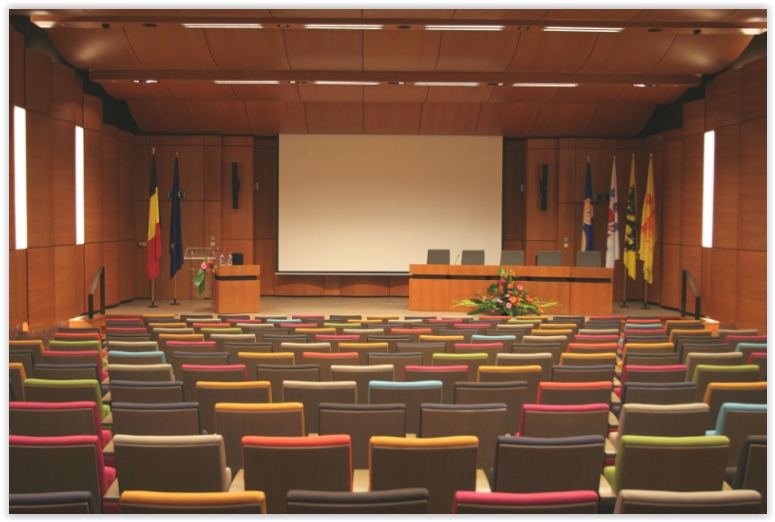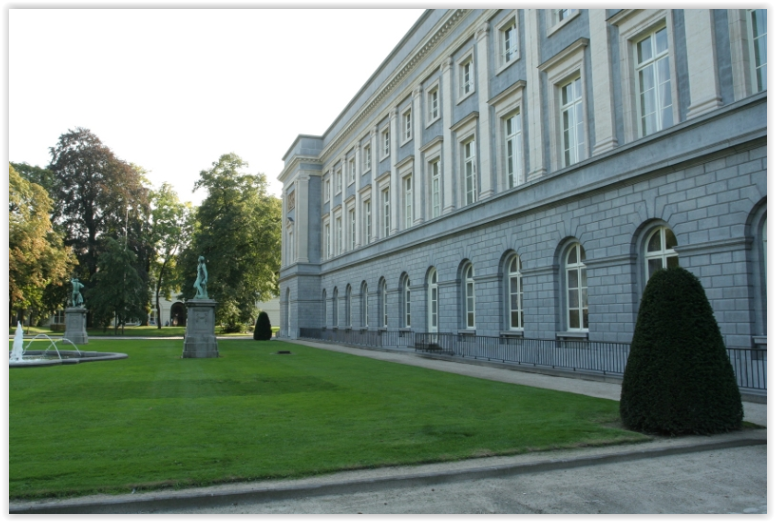Stress-testing European Marine Data – Towards a European Ocean Observing System
14-15 February 2017, Brussels, Belgium
Download the Conference Report
The First EMODnet Stakeholder Conference has brought together EMODnet experts and interested stakeholders to consider whether marine data collected via current observation and monitoring activities in Europe serve the needs of those who rely upon marine knowledge derived from observations and monitoring data. The Conference presented the findings of the EMODnet Sea-basin data stress tests (Checkpoints) and considered how to strengthen open data repositories serving users who face real problems. Finally the participants discussed possible solutions and ways forward to improve and better coordinate the existing and future monitoring and observation activities in Europe.
The Conference took place on Tuesday 14 and Wednesday 15 February 2017 at the Royal Flemish Academy of Belgium for Science and the Arts in Brussels, Belgium.
Timing and Venue
The EMODnet Checkpoint Stakeholder Conference took place over two days, from 9:00 on 14 February until 13:00 on 15 February 2017, at the Royal Flemish Academy of Belgium for Science and the Arts in Brussels, Belgium. The venue is located in near the Royal Palace in the Centre of Brussels at the Hertogsstraat 1 (Rue Ducale 1), 1000 Brussels, Belgium. The venue is at walking distance from Brussels Central Train Station and from Metro Station Trone.
Download the Logistics Information Sheet for information about the Conference Venue address and how to get there.
Conference Programme - download pdf
Meeting Chair: Phil Weaver (Chair of the EMODnet Steering Committee)
14 February 2017
09:00 - 12:30 Plenary Opening: Stress-Testing European marine data – the EMODnet Sea-basin Checkpoints
- Welcome and setting the scene (download pdf) – 10’
- Jan-Bart Calewaert (Head of the EMODnet Secretariat)
- Importance of data and information for users of ocean and coastal space and the role of industry as users and providers of marine data (download pdf) – 30’
- Keynote by Val Cummins (Irish Maritime and Energy Resource Cluster)
- Concept and Challenges of the EMODnet Sea-basin Checkpoints (download pdf) – 20’
- Iain Shepherd (European Commission, Directorate-General Maritime Affairs and Fisheries)
10.00 - 10.30 Coffee break
- Results of the EMODnet Sea-basin Checkpoints to date (North Sea, MedSea, Atlantic, Baltic, Black Sea & Arctic) – 90’
- Bathymetry (download pdf), Belinda Kater (Arctic)
- Biology (download pdf), Jun She (Baltic)
- Chemistry (download pdf), Atanas Palazov (Black Sea)
- Geology (download pdf), Nadia Pinardi (MedSea)
- Human Activities (download pdf), Quillon Harpham (North Sea)
- Physics (download pdf), Mikaël Vasquez (Atlantic)
- Seabed Habitats (download pdf), Jan-Bart Calewaert, head of the EMODnet Secretariat
12:00 -13:30 Lunch
13:30 - 17:00 Breakout session with 6 regional Sea-basin stakeholder workshops (in parallel)
- Evening reception with food from 17:30 until 20:00
15 February 2017
9:00 - 12:30 Plenary Closing: Improving Europe's Marine Observation Capacity
- Outputs and recommendations from the Sea-basin Stakeholder Workshops – 90’
- Jun She (Baltic - download pdf), Nadia Pinardi (MedSea - download pdf), Quillon Harpham (North Sea - download pdf), Mikaël Vasquez (Atlantic - download pdf), Eline van Onselen (Arctic - download pdf) - 10’ updates + 30 minute discussion
10:30 - 11:00 Coffee break
- Outcome of the Consultation on establishing an European Ocean Observing System (EOOS) (download pdf) – 15’
- Glenn Nolan (EuroGOOS)
- Marine data and observations for storm surge forecasting and other Met Office ocean modelling (download pdf) - 30'
- Keynote by Clare O'Neill (Ocean Modelling Scientist, UK Met Office)
- Concluding panel discussion: Towards improved data collection and open access -Synthesis of findings from the Conference – 60’
- Bernhard Friess (European Commission, Directorate-General Maritime Affairs and Fisheries), Niall McDonough (European Marine Board), Simon Jennings (ICES), Samantha Burgess (WWF), Val Cummins (Irish Maritime and Energy Resource Cluster)
Lunch from 12:30 – until 14:00
14:00 - 18:00 EMODnet Steering Committee Meeting (closed meeting)


About the Conference
The Conference aims to mobilise a wide group of interested stakeholders to consider joint issues, present common findings as well as highlighting differences between the Sea-basins as identified by the EMODnet Sea-basin Checkpoints in terms of existing and future monitoring and observation activities, data availability and usefulness to address real problems.
The main objectives of the EMODnet Checkpoints Stakeholder Conference are to:
- Inform interested stakeholders about the outputs and findings of the EMODnet Sea-basin Checkpoints;
- Consider how to improve future data adequacy assessments and outputs by seeking input from stakeholders’ needs and identification of gaps.
- Look forward with Stakeholders from science, policy, industry and civil society on how marine monitoring and observation activities could be improved and better coordinated in Europe.
EMODnet Sea-basin Checkpoints assess the quality of the current observation monitoring data at the level of the regional sea-basins. By testing the data against specific end-user challenges, the checkpoints aim to demonstrate how well the current monitoring systems and data collection frameworks provides data to meet the needs of users. In doing so, data gaps and duplications as well as significant bottlenecks are being highlighted
Six sea basin checkpoints are in operation. The first two checkpoints were initiated in the Mediterranean Sea and the North Sea in 2013. Four other Checkpoints covering the Arctic, Atlantic, Baltic and Black Sea were launched mid-2015.
- For more information about the EMODnet Sea-basin Checkpoints, consult the EMODnet central portal information pages at https://emodnet.ec.europa.eu/en/checkpoints
- More information about EMODnet in general can be found on the information pages of the central portal https://emodnet.ec.europa.eu/en/.
